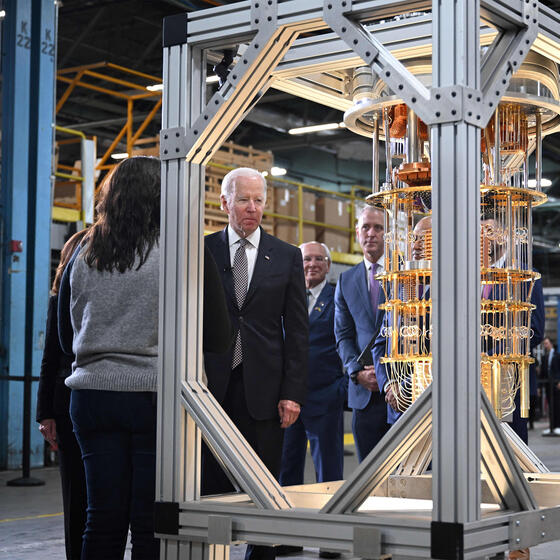Public Policy
Can Industrial Policy Help Revive Struggling Regions?
A new paper co-authored by Yale SOM’s Cameron LaPoint looks at an effort in 1980s Japan to narrow economic inequalities between geographic regions, in order to understand the potential impact of the similar U.S. CHIPS and Science Act, enacted in 2022.

Is Making All Banks Follow the Same Rules a Bad Idea?
Standardization. Harmonization. Coordination. They all sound like good ideas. But in a lecture at Yale SOM, Roberta Romano, the Sterling Professor of Law at Yale Law School, argued that the convergence of banking regulations brought about by the Basel Accords may have had the unintended effect of fueling the financial crisis.

Inspiring Economic Growth
Robert Shiller proposes government spending that inspires a vision of a better future.
More Public Toilets May Reduce Sexual Assault in South Africa
A new study by researchers at the Yale School of Management and the Yale School of Public Health.
Can We Have Economically Secure Retirements?
The end of defined-benefit pensions and a volatile stock market have made many Americans skeptical that they can retire comfortably. Is a new model emerging for how we plan for retirement? A panel of experts and practitioners talks about policies to help us bolster our retirement savings.

Are ‘Patent Thickets’ Smothering Innovation?
One analysis estimated that a smartphone is covered by 250,000 patents. As technology grows increasingly complex, companies must navigate a web of intellectual property protections. Are innovation and competition suffering from the race to create enormous patent portfolios? Professor Stefan Wagner of the European School of Management and Technology (ESMT), a member of the Global Network for Advanced Management, talked with Yale Insights about the consequences of “patent thickets.”

Community Motivation and Subsidies Increase Toilet Use in Developing World
A combination of community motivation and subsidies targeted to the poor is the most effective way to increase toilet ownership and use, and decrease open defecation, in developing countries, according to a new study published in the journal Science.
Can Cross-Sectoral Collaboration Reverse the Trend toward Income Inequality?
Income and wealth inequality in the U.S. has become a topic of widespread concern and discussion. A recent panel of Yale SOM alumnae posited that action from the federal government is unlikely. But the panelists found reason for hope in examples of the public, private, and nonprofit sectors collaborating to address the nation’s wealth gap.

What Can Game Theory Tell Us about Iran’s Nuclear Intentions?
What’s the best way to manage a secret project—one whose stakes, whether diplomatic or business, are very high? And what do your actions tell your opponents about your true intentions?
Are Elections Imperiling Our Democracy?
Every Election Day, politicians sporting flag pins step into voting booths and come out proclaiming their pride in the democratic process. But take a step back and things don’t look so rosy. Between badly run elections and a new wave of “dark money” entering campaigns, reformers fear that the very nature of our democracy is at risk.
Coworkers Affect Retirement Savings Rates
Investment companies including Fidelity, Putnam Investments, and Voya Financial are rolling out tools that tell investors how their retirement savings compare to those of their peers. This social comparison is intended to motivate investors to increase their savings; however, new research shows that it can have the opposite effect.